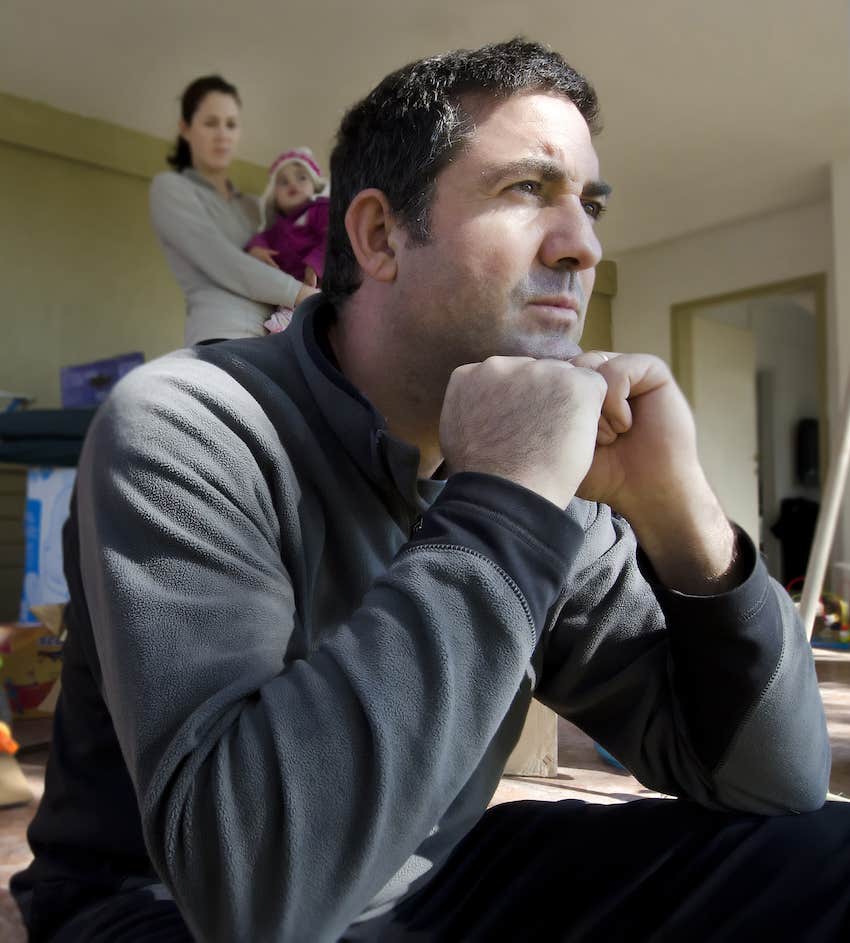New Study Proves What Betrayed Wives Already Knew About Cheating
Debunking the myths around what drives infidelity.
 Jose Calsina via Shutterstock
Jose Calsina via Shutterstock There is a popular misconception about cheating, one that ultimately hurts the betrayed partner. The myth is that cheating is due to a lack of intimacy at home.
However, infidelity is complex and more often unrelated to passion, physical intimacy, or emotional closeness in the marriage. While popular theories have long said otherwise, many betrayed wives already knew what research has now proven. Here's what we know.
Study proves what betrayed wives already knew: it's not the betrayed partner's fault
There's 'minimal influence by the partner' upon the cheater
According to a study on weaponizing Infidelity, the choice to be unfaithful is "driven by individual tendencies, with minimal influence by the partner."
Debunking the myth of what drives infidelity is important because women tend to think they aren't enough when their partner betrays them, as shown in a study of betrayal trauma. The pain of the betrayal spirals into self-doubt and lowered self-esteem, which creates relentless suffering.
Having led support groups for separation and divorce for more than 25 years, I've seen how this misconception places undue blame on the betrayed spouse. Research on emotional reactions to infidelity supports how betrayed wives often examine their lives and marriages, searching for what they could have done differently.
It's not about the betrayed partner's attractiveness
 ChameleonsEye via Shutterstock
ChameleonsEye via Shutterstock
"I guess I just wasn't attractive to him anymore," one woman said, who was considered by the others to be strikingly beautiful and fit. "If only I had been more adventurous in bed," another spoke aloud with her head held in shame before continuing, "perhaps I let motherhood become more important than pleasing him," I observed a women nodding in understanding her feelings and then lifting her in prioritizing motherhood. While there is much grief to bear, women lift one another from self-punishment and blame.
Many are bewildered and confused from having been caught off guard by the revelation their spouse cheated. By showing up week after week in a safe place to share the reality of their experiences, they connect the dots and untangle the knots of deceit. They are devastated by the depth of lies and his ability to hurt her. A 2005 study helps demonstrate how the emotional toll on the betrayed can be irreparable.
Cheating often occurs even in relationships with a strong, intimate bond
If documented as data, the recurring themes in stories shared in these group settings would support the official research that many partners cheat despite having an affectionate, loving relationship. Partners cheat due to their motivations, and not because of the state of their marriage.
While a strong commitment to a spouse is a deterrent, it all comes down to what makes them vulnerable.
Every one of us could become vulnerable to having an affair
The difference lies in our commitment to ourselves, our vows, and our spouse.,
A healthy partner co-creates a healthy relationship by communicating their vulnerability to their partner out of respect for their commitment to them, so they can use awareness to heal the issue together before it becomes an act of betrayal and shattered trust, as supported by 2020 research. This allows time for compromise once there is an understanding of what each finds attractive, adventurous, and balanced with family and work life.
This is about your spouse, not you
 fizkes via Shutterstock
fizkes via Shutterstock
It is not a reflection of your worth or the quality of your love. You cannot give, do, or be more to prevent someone from betraying you. It is never your fault or anyone's. The choice to cheat is the cheater's alone. By shifting this perspective, you can take control of the healing process and reframe the conversation around infidelity, empowering yourself in the process.
Stop the self-blame and assumptions that the marriage was deficient and instead look through the lens of individual psychological, personality, and situational factors.
The decision to remain committed to the vows made in marriage and be faithful to your partner is purely personal. It is a choice you make situation by situation, moment by moment. We all could be vulnerable at any moment in time; we must decide whether we will honor ourselves, our vows, and our spouse or risk the devastation of infidelity.
Ann Papayoti, PCC, is a relationship coach, author, speaker, and host of the podcast Soul CPR Healing Out Loud. She helps people untangle from their past, heal from heartbreak, and revive their lives.

